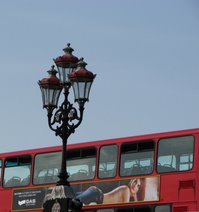Nothing I have read, and I have read fairly widely, gives me a serious idea about what policies he is proposing other than some broad outlines. The broad outlines, I frankly find disturbing especially in the troubled times we live in.
My summary of the broad outlines Obama has revealed are as follows:
1) Raise taxes and increase spending. Hardly inspirational in times like these when the economies of the world are so fragile. The Wall Street Jounal summarised his tax plans like this:

2) Introduce trade protectionism- not a particularly positive plan at a time of world recession.
3) Withdraw US troops from Iraq. On examination this amounts to a little more than a discussion over timing so is hardly a radical proposal, whether right or wrong.
Obama's only clear message is "change" without any definition of what this change really is. Worse still, most of his supporters do not seem to have any clear idea what this change is about except that it must be something good. This is to imagine that change in itself is always good which seems very dangerous. Surely the leaders who have caused the most change were the most revolutionary or brutal. Hitler and Stalin certainly brought about a lot of change.
Obama's most obvious skill is his ability to speak. This seems unarguable to me. By extension this could be seen as an ability to inspire. However without clear plans or with some undesirable broad outlines, this seems no reason to elect him.
Perhaps most telling is a story being reported by today's Telegraph referring to a 2001 radio interview Obama gave when he spoke positively of the need for "redistributive change". That can mean many things but what he seemed to be saying was that it was not enough for the courts to do this but that legislation would be required.
Here are some extracts from the interview:
So one possibility is that Obama will be elected on the basis of some vague emotional notion of "change" to introduce redistributive based legislation and taxation at a time of global recession. That seems a recipe for disaster.
The other option is for him to be another Tony Blair and be elected to the cheering screams of his most extreme supporters only to be remarkably unradical and in the process alienate most the people who first supported him. This may also be possible and certainly has its precedent ! It is possible to imagine in that scenario that in 4 years he is viewed as little different from a black CEO of a major corporation and the most ardent critics will be the signifcant number of black voters who supported him but feel nothing has changed for them.
However the option to be most worried about is an increase in taxation and legislation to support redistribution of wealth (as described in his radio interview). At a time of global recession not even the Liberal Democrats are proposing that.
So unless there is a surprise next week I will not be joining the majority view in cheering the result. I will be quietly worried as to what Obama change really means. I will be watching with concerned interest.





